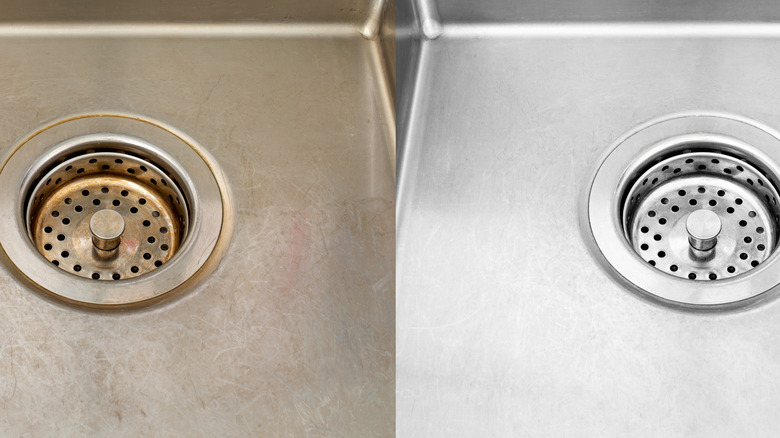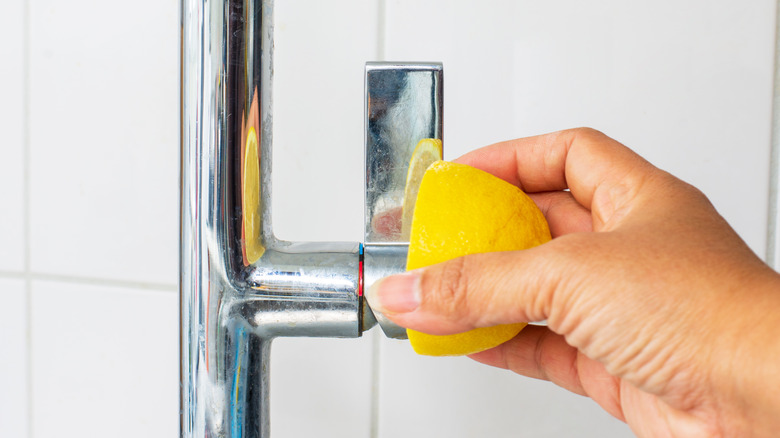How To Get Rid Of Rust Stains
Rust in your kitchen or bathroom or on your cooking equipment or car is no good. It's visually unappealing, but it can also wear down your surfaces over time. According to the Department of Physics at the University of Illinois at Urbana-Champaign, the bright side is that rust is non-toxic. It won't pose a biological hazard, but when surfaces are rusted for long enough, they become increasingly brittle and can corrode and break.
Naturally, metals rust when exposed to prolonged amounts of air and water. If not kept clean, the surfaces acquire rust in spots that can spread like a virus. Because of this, it's best to take care of rust stains as soon as you notice them, just as you'd do with lipstick stains on your clothes or how you'd get rid of deodorant stains. After all, taking care of your belongings so you don't have to replace them is environmentally friendly, too!
Interestingly enough, rust stains are perhaps most similar to wine stains. To get rid of wine stains, people often employ lemon juice, which also applies to rust stains, per Apartment Therapy. For rust, use lemon juice in conjunction with salt to remove both discoloration and residue. However, other household items will work for rust, too.
Store-bought rust remover is acceptable, but not necessary
Lemons and salt make excellent rust stain removers, but so do some other common household items. According to Apartment Therapy, a paste made from cream of tartar and hydrogen peroxide can be effectively used on rust stains when scrubbed on them. It also works especially well on fabrics. Once you spread the paste on the fabric, you let it sit and then clean it. Hopefully, the stain will be removed once clean!
If you don't have cream of tartar, you should reach for your handy dandy bottle of distilled vinegar. Cleaning-grade vinegar will work wonders, but regular distilled vinegar will work, too. According to The Spruce, scrubbing kitchen and bathroom surfaces with vinegar can be a highly effective preventive and treatment regimen when done weekly. These treatments can also be done with certain abrasive substances such as pumice powder.
Naturally, you can also purchase manufactured rust cleaner. These come with clear instructions regarding how long you should scrub surfaces with them and how long they should sit before being rinsed. With all of these options, there's no reason your surfaces can't be turned around if you spot rust stains on them!

